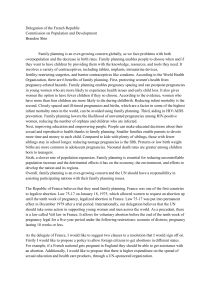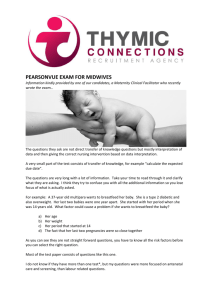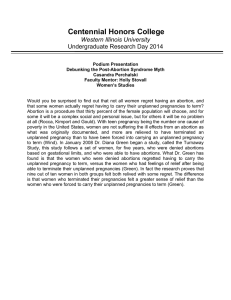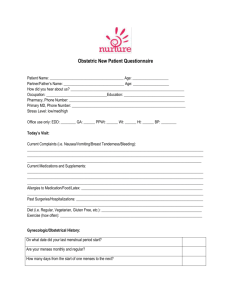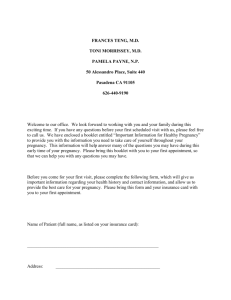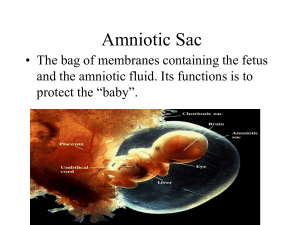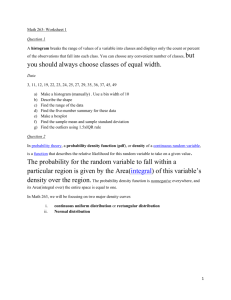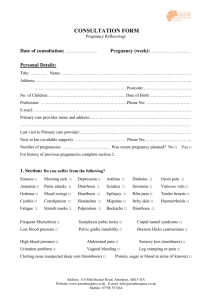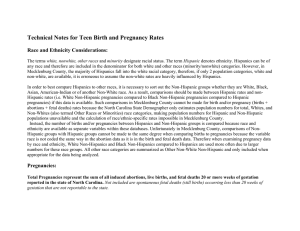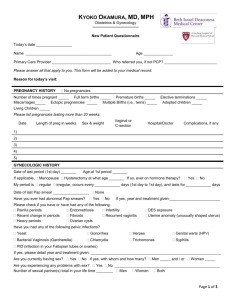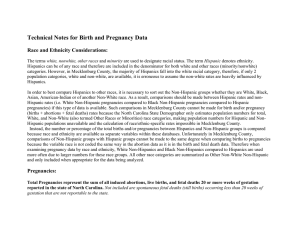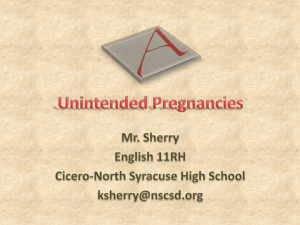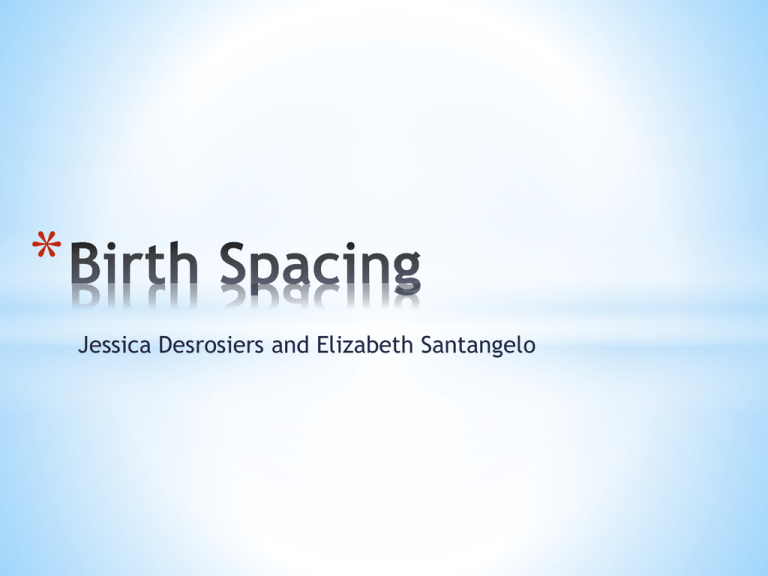
*
Jessica Desrosiers and Elizabeth Santangelo
*
* Birth Spacing is the practice of waiting
between pregnancies.
* After having a baby, it is a good idea to
wait
18-24 months before getting pregnant again
to maintain the best health for a woman’s body
and her children.
* When the time between pregnancies is less
than 18 months, her body may not be ready to
have a healthy baby.
*
*Adolescents
*Newlyweds
*Postpartum Women
*Women age 30 and
older
*
* Increased risk of having a
poor birth outcome
* Threaten the health of the
child and the mother
* Associated with infant
mortality and other shortterm and long-term health
complications
*
* Avoid having sex during the
fertile days of a woman’s cycle
* Barrier method of birth control,
such as the male or female
condom
* Medication or hormonal method,
such as birth control pills
* A woman’s health status, body
mass index, habits, and other
considerations are all important
factors in choosing a
contraceptive method
*
Timing
* Pregnancies delayed until 18 years of
age
* Pregnancies occur before age 34
Spacing
* Pregnancies spaced to occur 18-24
months after preceding live birth (a
33 month birth-to-birth interval)
* Pregnancies spaced to occur 6
months after miscarriage or induced
abortion
*Too Short Pregnancy
Intervals are Associated
with Multiple Adverse
Outcomes
Perinatal/Infant Outcomes:
•Pre-term birth
•Low birth weight
•Small size for gestational age
•Still birth
•Newborn/infant mortality
Maternal Outcomes:
•Maternal mortality
•Induced abortion
•Miscarriage
*
* The placenta partially or completely peeling away
from the inner wall of the uterus before delivery
(placental abruption)
* The placenta attaching to the lower part of the
uterine wall, partially or totally covering the cervix
(placenta previa), in women who previously had a
C-section
*
Some experts believe that closely spaced pregnancies don't
give a mother enough time to recover from the physical
stress of one pregnancy before moving on to the next. For
example, pregnancy and breast-feeding can deplete your
stores of essential nutrients, such as iron and folate. If you
become pregnant before replacing those stores, it could
affect your health or your baby's health.
*
When pregnancy occurs
more than 24 months
after a live birth:
Allows infant to benefit
from two full years of
breast feeding

